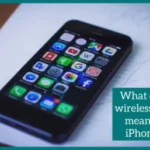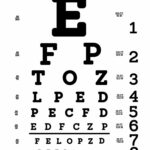Navigating the labyrinthine world of digital communication requires decoding an ever-evolving lexicon of acronyms and initialisms. Amidst this linguistic flux, “Lwk” emerges as a relatively novel entry, often leaving recipients scratching their heads. What exactly does this cryptic abbreviation signify? More importantly, why should one even bother deciphering it?
The answer, as is often the case with internet slang, lies in understanding the nuances of online interaction. “Lwk,” at its core, stands for “laughing with kindness.” It’s an expression designed to temper potentially hurtful or dismissive laughter with a dose of empathy and understanding. This seemingly subtle distinction carries significant weight in an environment where misinterpretations and digital faux pas are rampant.
Consider the implications of simply typing “lol” or “haha” in response to someone sharing a personal anecdote. While the intention might be lighthearted, the recipient could perceive the reaction as mocking or insensitive, particularly if the anecdote involves vulnerability or hardship. “Lwk,” conversely, aims to mitigate this risk by signaling that the laughter is born of shared amusement rather than derision. It’s an attempt to forge a connection, to acknowledge the humor in a situation without diminishing the other person’s experience.
The use of “lwk” reflects a growing awareness of the potential for online communication to inflict emotional harm. The anonymity and distance afforded by the internet can embolden individuals to express themselves in ways they might not in face-to-face interactions. This can lead to a climate of negativity and cynicism, where empathy is often overlooked in favor of quick wit and scathing remarks. “Lwk,” therefore, represents a conscious effort to counteract this trend, to inject a modicum of compassion into the digital discourse. It’s a small but meaningful gesture that acknowledges the humanity of the person on the other end of the screen.
The application of “lwk” is context-dependent. It’s best suited for situations where the humor is gentle, self-deprecating, or relatable. Imagine a friend recounting a clumsy mishap or sharing an embarrassing anecdote from their childhood. Responding with “lwk” in such instances conveys a sense of camaraderie and shared amusement. It signals that you appreciate the humor without trivializing their experience. Conversely, “lwk” might be inappropriate in situations involving serious topics, personal tragedies, or sensitive issues. In such cases, a more empathetic and supportive response is warranted.
Furthermore, the effectiveness of “lwk” hinges on the recipient’s understanding of its meaning. If the person is unfamiliar with the term, they might misinterpret it or find it confusing. This underscores the importance of clear communication and adapting one’s language to suit the audience. While acronyms and initialisms can be convenient shortcuts, they can also create barriers to understanding if not used judiciously. In situations where there’s a risk of misinterpretation, it might be preferable to use a more explicit phrase, such as “I’m laughing with you” or “That’s funny, and I empathize with you.”
Beyond its literal meaning, “lwk” can be seen as a broader commentary on the nature of online interaction. It highlights the importance of intention, empathy, and mindful communication in a digital world that often prioritizes speed and brevity over substance. It serves as a reminder that behind every screen name and profile picture is a real person with emotions, feelings, and experiences. By consciously choosing language that promotes understanding and kindness, we can foster a more positive and supportive online environment.
The rise of “lwk” also speaks to the cyclical nature of internet slang. As certain expressions become ubiquitous and their original meaning diluted, new terms emerge to fill the void. “Lol,” for example, has become so overused that it often lacks genuine emotional resonance. “Lwk,” in a sense, represents a reaction against this trend, an attempt to inject nuance and sincerity into a language that has become increasingly commodified. It’s a reminder that language is a living, breathing entity, constantly evolving to reflect the changing needs and values of its users.
In conclusion, “lwk” is more than just a simple acronym. It’s a micro-expression of empathy, a conscious effort to temper laughter with kindness, and a reflection of the evolving landscape of online communication. While its usage might be context-dependent and its meaning not universally understood, it represents a positive step towards fostering a more compassionate and understanding digital world. So, the next time you’re tempted to type “lol” without a second thought, consider whether “lwk” might be a more appropriate and meaningful response. You might be surprised by the difference it makes.









Leave a Comment